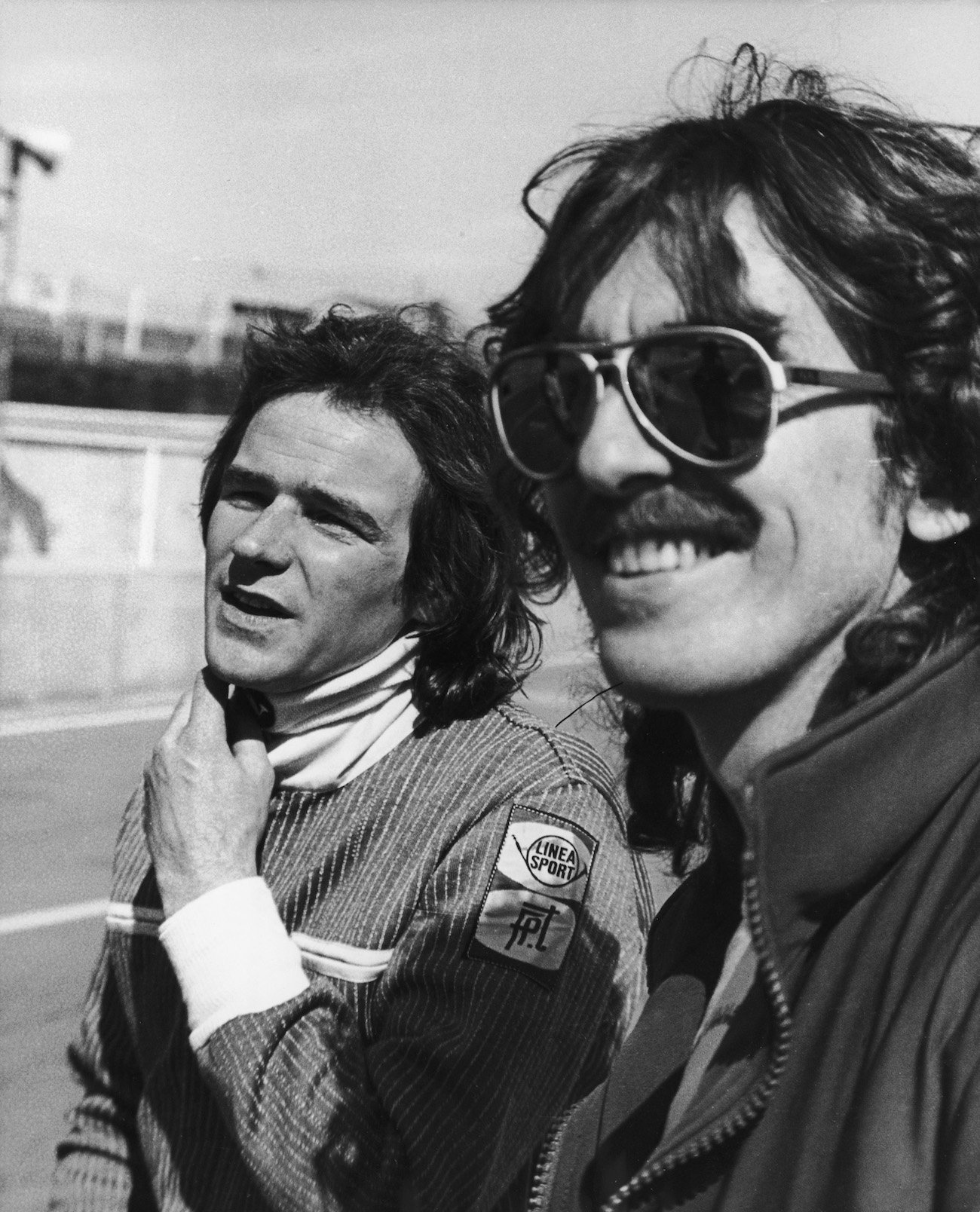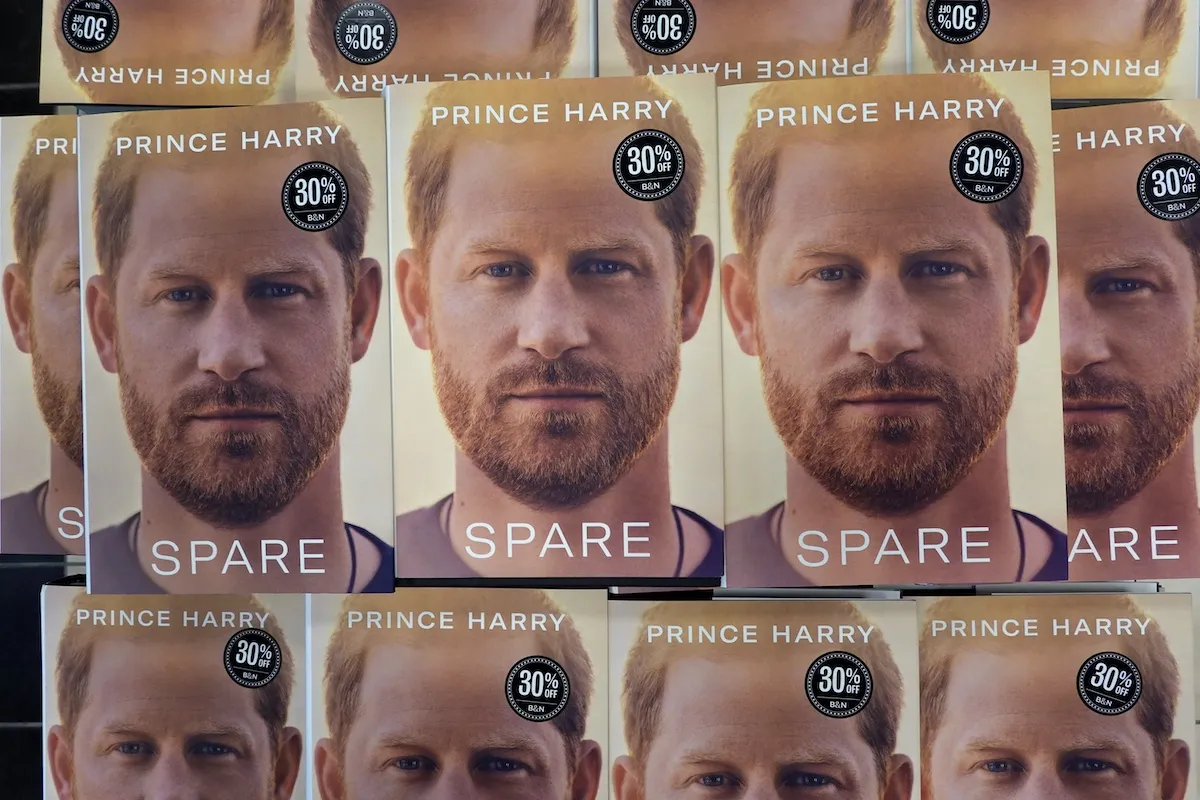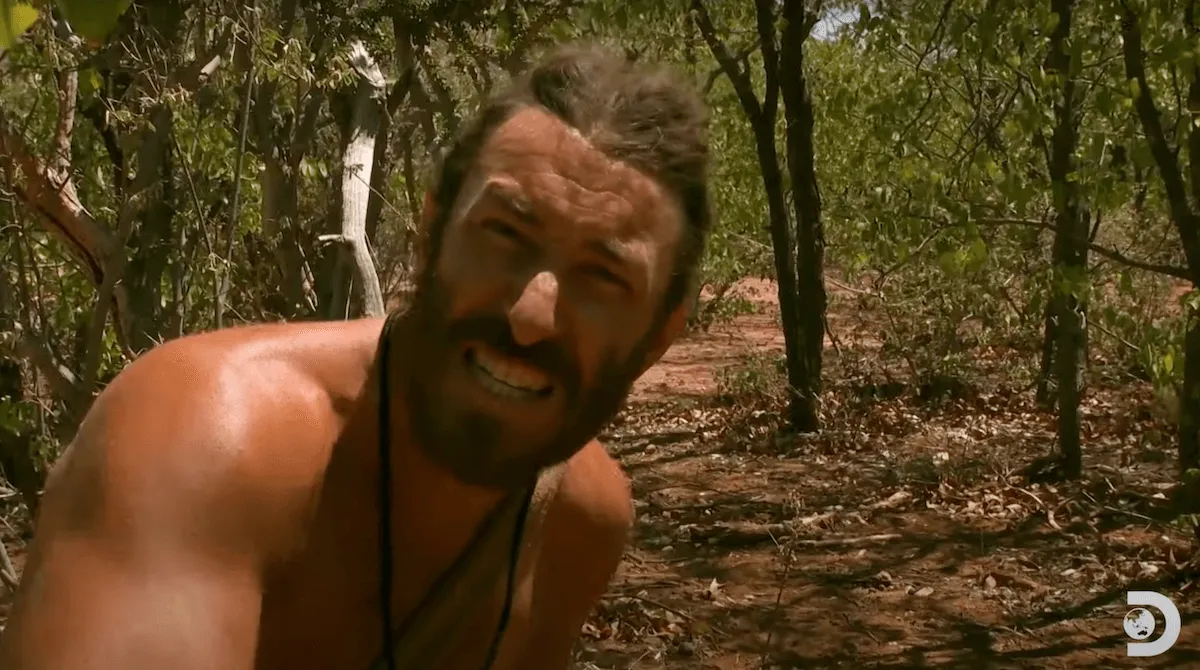George Harrison Wrote ‘Faster’ for His Race Car Driving Buddies, but the Song Has a Deeper Meaning
George Harrison knew how to start a song one way and have it come out as something different when he finished it. George said most of his songs went through a metamorphosis. They have tons of different meanings, and “Faster,” off 1979’s George Harrison, is no different.
Upon first listen, you might think that the tune only caters to George’s Formula One buddies, which it did. However, according to George, the song can touch just about everyone, not just race car drivers.

George Harrison wrote ‘Faster’ for his Formula One buddies
George’s love for car racing predates his passion for music. According to Rolling Stone, George saw Liverpool’s first British Grand Prix in Aintree when he was 12. “I followed Formula One until the time we started being professional musicians, and even then in the Sixties, though we were so busy, I caught a few races, mainly Monte Carlo,” he said.
In the late 1970s, George got close with Jackie Stewart, the retired triple world champion Formula One driver. “It was really through him that I got backstage, and it’s much more interesting back there,” George explained.
The races were one of the reasons why George started writings music again. Before 1979, George wasn’t making new music because he’d become disenchanted with the music industry. He told Rolling Stone that he only started thinking about music again once everyone at the races began asking him about new material.
“I was getting embarrassed because I was going to all these motor races, and everybody was talking to me like George, the ex-Beatle, the musician, asking me if I was making a record and whether I was going to write some songs about racing, and yet musical thoughts were just a million miles away from my mind,” George explained.
A conversation with Niki Lauda prompted George to write music again, if only so Lauda had something to listen to, and he wrote “Faster” as a tribute to Stewart and all the other guys in Formula One.
George said ‘Faster’ is for anyone who feels pressures after becoming successful
Although he had his Formula One buddies in mind when he wrote “Faster,” the song can speak to anyone.
“It’s easy to write about V-8 engines and vroom vroom – that would have been bulls***,” George said. “But I’m happy with the lyrics because it can be seen to be about one driver specifically or any of them, and if it didn’t have the motor-racing noises, it could be about the Fab Four really – the jealousies and things like that.”
In his 1980 memoir, I Me Mine, George said he wrote the song as a challenge after many people asked him if he would write a song about car racing.
“I got the title first—I took it from Jackie Stewart’s book! I then wrote the chorus ‘faster than a bullet from a gun, etc.’ and later worked out the rest of the song in a way that doesn’t limit it only to motor cars. Once I put the sound effects on then obviously it is about racing but, if you took that away the only thing in the song which is anything to do with cars is the word ‘machinery.’
“The story can relate to me or you or anybody in any occupation who becomes successful and has pressure upon them caused by the usual jealousies, fears, hopes, etc. I have a lot of fun with many of the Formula One drivers and their crews—and they have enabled me to see things from a very different angle than the music business I am normally involved with.”
George saw the similarities between race car driving and playing music
There are similarities between racing cars and playing in a rock band. They’re both fast living. George knew this, and he also knew that both could give you a heightened experience.
Stewart says his friendship with George was based on their shared love of the heightened experience one gets from driving fast cars. Not the fast cars themselves.
“When you’re driving a racing car to the absolute limit of its ability, and that of your own ability, it’s a very unique emotion and experience,” Stewart explained in Martin Scorsese’s documentary George Harrison: Living in the Material World.
“When that happens, your senses are so strong. That’s what I think George saw in racing. We talked about things like that a lot: heightened sense, of your feel and your touch and your feet… If you listen to a really top guitarist, or any top musician, and how they can make that guitar talk, or that keyboard talk, or the skins talk, that’s another heightening of senses that is beyond the ken, the knowledge of any normal man or woman.”
George was always trying to find a heightened experience because he was sick of the world; he wanted more. George wanted to connect with God in any way, whether it was through nature, listening and playing music, or fostering deep relationships with his friends.


